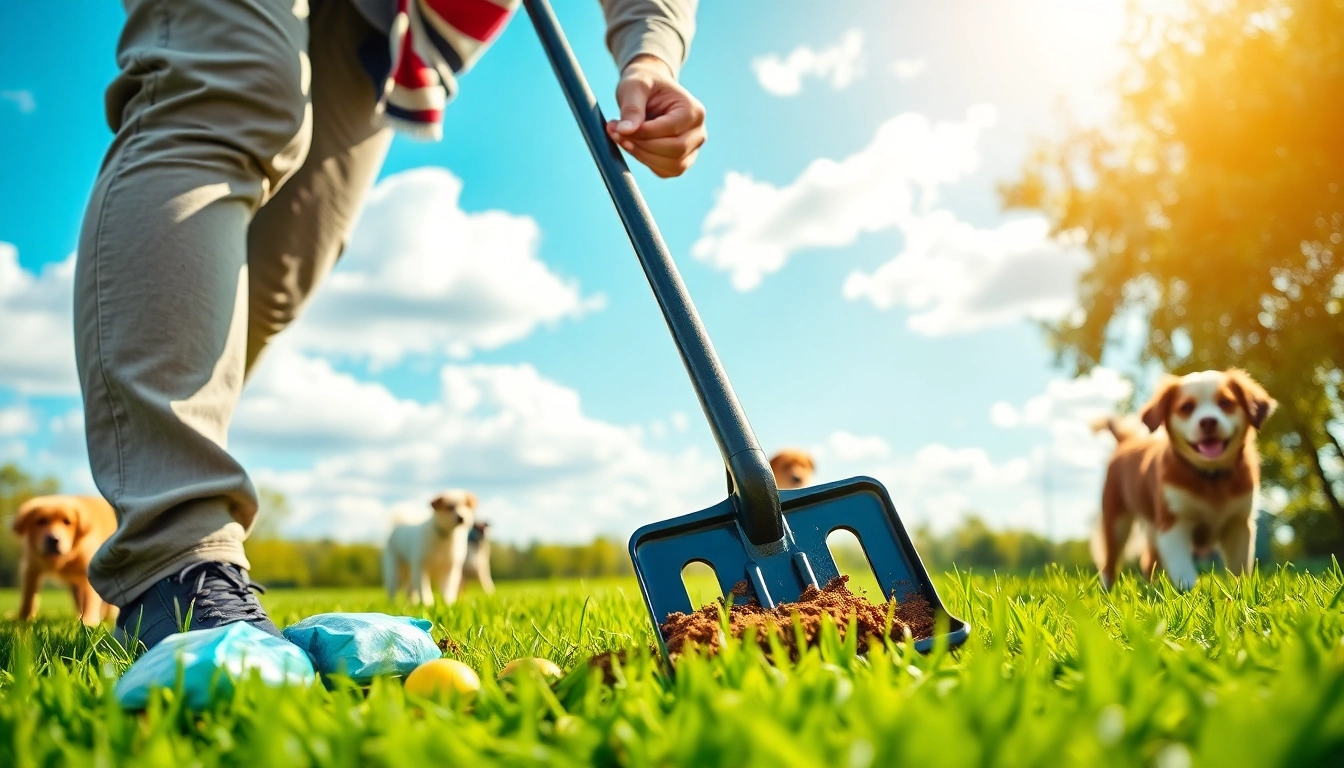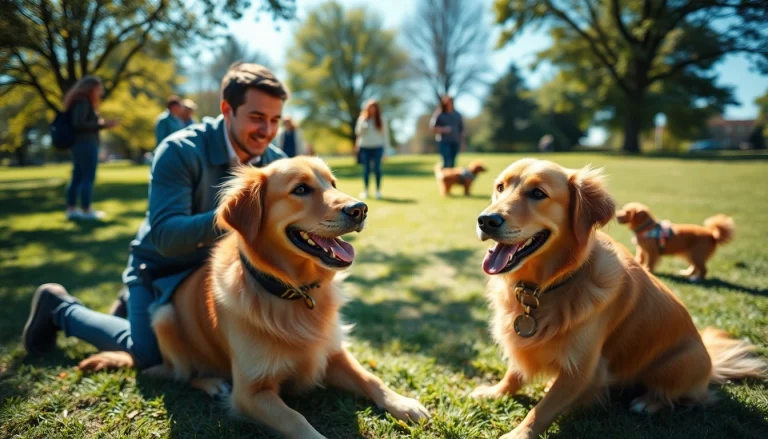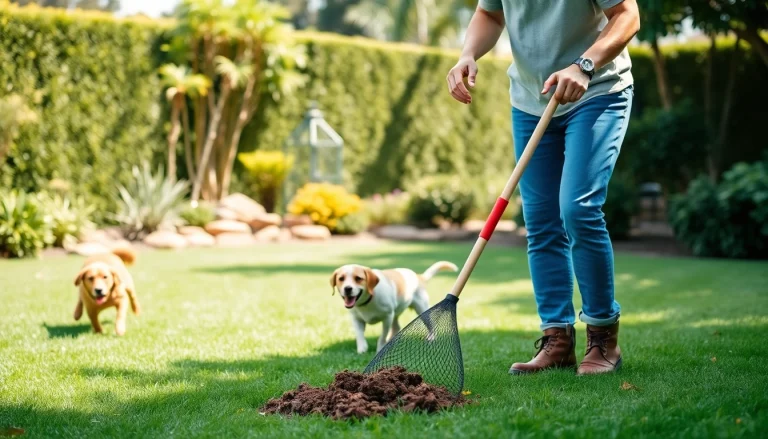
Understanding the Importance of Cleaning Up Dog Poop
As dog owners, one of our primary responsibilities is ensuring our furry friends are well cared for and their needs are met. Among those needs, proper waste management is crucial, yet often overlooked. Cleaning up dog poop is not just about maintaining a neat yard; it has far-reaching implications for health, environment, and the overall quality of life in our communities. In fact, embracing effective strategies to clean up dog poop can significantly enhance our relationship with our pets, our neighbors, and the ecosystem at large.
Health Risks Associated with Dog Waste
One of the most critical reasons to clean up after dogs is the potential health risks associated with dog waste. Dog feces can carry a range of pathogens, including bacteria, parasites, and viruses, which can pose a threat not only to our pets but also to humans. For example, diseases such as roundworms, hookworms, and parvovirus can easily spread if proper sanitation measures are not taken.
Furthermore, dog poop can contribute to environmental health issues. When left on the ground, it can wash into water sources during rainstorms, contaminating the water with harmful microbes. This situation not only affects aquatic life but can also pose serious risks to humans relying on that water for drinking and recreational purposes.
Environmental Impact of Neglecting Cleanup
Neglecting to clean up dog poop not only jeopardizes our pets’ health but also carries significant environmental consequences. Unattended waste can lead to nutrient overloading in the soil and water, altering ecosystem balance. This nutrient pollution can trigger harmful algal blooms that deplete oxygen in water bodies, creating dead zones where aquatic life cannot survive.
Additionally, responsible pet ownership involves understanding our impact on public spaces. Many parks and shared environments may face local regulations regarding pet waste management. Failing to comply with these regulations can lead to fines and damage community relationships, proving that cleaning up after our dogs is not merely a matter of personal responsibility but a collective obligation.
Benefits of Regular Cleanup for Pet Owners
Regularly cleaning up after your dog not only offers health and environmental benefits but also enhances your overall experience as a pet owner. A well-maintained yard reduces the risk of unpleasant odors, prevents pest infestations, and creates a welcoming environment for family and friends. Moreover, it instills a sense of pride in dog owners when they can showcase a clean and pleasant outdoor area.
Additionally, developing a routine for waste collection can become an integral part of dog ownership, fostering discipline and responsibility. Engaging in this practice ensures that pet owners remain aware of their dog’s health, as changes in waste consistency or frequency can be indicators of health issues requiring veterinary attention.
Best Tools and Techniques for Cleanup
Having the right tools and techniques is essential for efficiently tackling the challenge of dog waste cleanup. The selection of appropriate equipment can notably ease the process and encourage consistent maintenance. Here’s a breakdown of the best tools to consider.
Choosing the Right Pooper Scooper
The pooper scooper is a quintessential tool for dog owners. When selecting a pooper scooper, consider factors such as convenience, ergonomics, and the size of your dog. Options range from simple hand-held scoops to long-handled varieties, which can minimize bending and make the process easier on your back. A good pooper scooper should also be durable and easy to clean, with some models specifically designed to handle various waste types.
Investing in a quality pooper scooper can be a game changer. For example, a metal pooper scooper is tough enough to handle tough terrains, while a lightweight plastic one is more suitable for indoor use. Consider options that feature a clamping mechanism to prevent waste from falling out, enhancing your cleanup efficiency.
Effective Waste Bags: What to Look For
Dog waste bags are another essential element for effective cleanup. When shopping for dog waste bags, opt for those that are thick, leak-proof, and ideally, biodegradable. Investing in quality waste bags affords peace of mind, ensuring waste is securely contained and won’t spillage during transport.
Many pet owners also appreciate bags that can be easily dispensed from a holder or a leash attachment, making them convenient for walks. Brands that offer refillable bags in a variety of sizes allow for customization based on the size of your dog and how often you need to walk them.
Creative DIY Tools for Dog Poop Cleanup
If you’re a DIY enthusiast, consider creating your own dog poop cleanup tools. Simple innovations like a homemade scoop made from a milk jug or a garden shovel can work just as well as commercial options. Alternatively, repurposing everyday items can save money while still remaining effective. The key is ensuring that your DIY tools are durable and easy to handle, keeping in mind the goal of efficiency and hygiene.
How to Clean Up Dog Poop in Various Conditions
Cleaning up dog poop can vary significantly depending on the environment and conditions. Here are some tips to help you efficiently handle poop cleanup throughout the year and in various weather conditions.
Tips for Cleaning in Cold Seasons
During colder months, dog poop can often freeze, making it more challenging to scoop up. To improve your dog waste cleanup routine in winter, try warming your tools before use, as this can help in breaking apart frozen turds. Additionally, consider marking the spots where your dog frequently defecates—a visual guide can simplify the cleanup process, especially when snow covers the ground.
Another strategy is to keep a designated “poop area” in your yard, where your dog is encouraged to relieve themselves exclusively. Not only does this make winter cleanup faster, but it also minimizes the aesthetic impact on your yard.
Managing Cleanup in Wet Weather
Cleaning up dog poop in rainy conditions presents unique challenges. Wet poop can be messy to handle, leading to splattering and potential contamination. To manage this, try carrying extra waste bags when walking your dog during the rainy season and opt for a pooper scooper with a larger scoop area. This keeps your hands cleaner and more protected from the wetness.
Moreover, consider wearing gloves while cleaning up, as this adds protection against contaminants and prevents residual odors from sticking to your hands. If the poop has become too squishy or hard to scoop, you can use an absorbent material like cat litter to dry the poop before attempting to clean it up.
Strategies for Hard and Soft Poop
When it comes to cleaning up dog poop, consistency in your dog’s stool can impact how easily it can be removed. If your dog tends to have soft stools, it may require more immediate cleanup to minimize staining and odors. Using a scoop with a rake can help you gather softer poop without much hassle.
Conversely, hard stools can often be easier to pick up. However, if they have been crushed into the grass or dirt, it may require a bit of additional scraping and clean-up methods. Owners can utilize enzymatic cleaners following the initial removal to help eliminate the smell and any staining on the grass.
Innovative Solutions for Dog Waste Disposal
As concerns regarding waste disposal rise, innovative solutions are emerging to aid dog owners while protecting the environment. These methods go beyond traditional cleanup practices.
Compost Bins for Dog Waste
Composting dog waste can be an eco-friendly solution that benefits your garden while reducing landfill waste. However, it’s crucial to recognize that not all composting methods are suitable for dog waste. Traditional composting is best suited for plant-based materials, while dog waste should be processed separately.
Using a specialized compost bin designed for pet waste can mitigate odor and safely decompose dog feces. The bin creates a safe breakdown environment, often involving heat, which neutralizes bacteria and parasites. Once composted, these materials can be used in non-edible gardens, ensuring safety in producing nutrients for your plants without risk.
Dog Waste Digesters: A Sustainable Choice
Dog waste digesters function similarly to miniature septic systems, designed explicitly for pet waste disposal. They typically involve a buried chamber where dog poop is combined with enzymes and supportive bacteria. Over time, this mixture breaks down the waste into non-toxic compost-like material. This method is ideal for pet owners looking for a low-maintenance solution that integrates seamlessly into their yard.
A waste digester usually has low odor, is easy to use, and can significantly reduce the need for regular manual cleanup. Installation requires digging a hole and following a straightforward setup procedure, making it relatively simple for most homeowners.
Pet Waste Removal Services: Are They Worth It?
Pet waste removal services have gained popularity, offering convenient solutions for busy pet owners who struggle to maintain consistent cleanup routines. These services allow you to outsource waste management, freeing your time and ensuring that waste is handled professionally.
Many services also provide additional benefits, including disinfecting your yard after cleanups and the ability to schedule regular visits. While there is a charge associated with these services, the peace of mind and time saved can make them a worthwhile investment for many pet owners.
Creating a Dog-Friendly Cleanup Routine
Establishing a routine for cleaning up after your dog encourages consistent practices that will benefit you and the environment. Here are some essential strategies that can help you create a habit of waste management.
Incorporating Cleanup into Daily Walks
A seamless way to ensure regular cleanup is to integrate it into your daily walking routine. Carry waste bags and a pooper scooper on your walks and make picking up waste a standard part of the outing. This method emphasizes the importance of cleanup and establishes a habit over time.
Moreover, consider implementing a reward system for your dog. Rewarding your dog for well-timed potty breaks can reinforce good habits while simultaneously encouraging you both to maintain a clean environment.
Engaging Kids in the Cleanup Process
Involving family members, especially children, in waste cleanup fosters responsibility and teamwork. Designate a “clean-up day” where the entire family participates in maintaining a clean environment, explaining the reasons behind it, and instilling a sense of accountability regarding pet ownership.
Employ fun educational games that teach kids about the importance of waste cleanup and environmental care. This engagement can make the process enjoyable and develop a lasting respect for nature and responsible pet ownership.
Setting Reminders to Stick to a Schedule
Creating a solid schedule for dog waste cleanup can streamline the process, especially if you lead a busy lifestyle. Utilize smartphone apps, alarms, or calendars to set regular reminders for cleaning your yard or ensuring that you have adequate bags on hand during walks. Consistent timing can make cleanup second nature, lasting results over time.
By coupling your reminder system with a designated cleanup day, you can ensure that your efforts remain organized and consistent, ultimately leading to a cleaner environment for both your pet and family.
Conclusion
In summary, cleaning up dog poop is a responsibility that extends beyond simple aesthetics. As pet owners, we must recognize the health risks and environmental impacts associated with neglecting this task. By leveraging the right tools, techniques, and strategies, we can effectively manage pet waste and maintain cleaner, healthier surroundings. A well-organized routine fosters not only a better relationship with our pets but also contributes positively to our communities and ecosystems. Making dog waste management part of our daily lives empowers us to take proactive steps towards responsible pet ownership.






